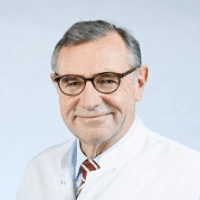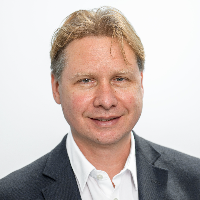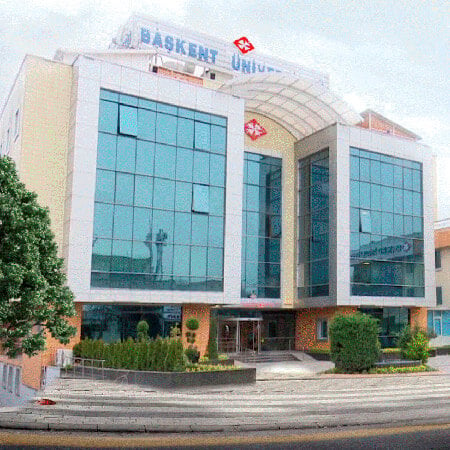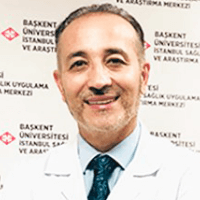Annuloplasty With Carillon Mitral Contour System for Mitral Valve Insufficiency (prolapse) treatment
Treatment prices are regulated by national law of the corresponding countries, but can also include additional hospital coefficients. In order to receive the individual cost calculation, please send us the request and medical records.

Department of Cardiothoracic Surgery
According to the Focus magazine, the Department of Cardiothoracic Surgery ranks among the top medical facilities in the field of its specialization! The department offers all options of modern surgery for the treatment of diseases of the cardiovascular system and thoracic organs. The department widely uses modern minimally invasive techniques, which are considered the gold standard of surgery. Since its founding in 1976, the department has performed more than 40,000 open heart interventions. The department's surgeons also have vast experience in the field of implantation of the artificial heart and mechanical heart support systems. All operations are carried out in strict accordance with the protocols of professional societies.







Department of Cardiac Surgery
The Department of Cardiac Surgery specializes in a full range of cardiac surgical procedures. The medical facility performs operations for ischemic heart disease, valvular heart disease, arrhythmias, heart failure, aortic aneurysms, and aortic dissections. The department's cardiac surgeons have successful experience implanting mechanical circulatory support systems in patients with heart failure: Impella®, ProtekDuo®, and LVAD devices are implanted here. Of particular interest is minimally invasive surgery, which, in addition to an optimal functional outcome, ensures minimal trauma rate, rapid recovery, and the absence of cosmetic defects. In cooperation with interventional cardiologists, the department's surgeons also perform hybrid heart operations, combining catheter-based and classical surgical techniques. The department has the prestigious DIN EN ISO 9001:2015 certificate, given only to the best clinics with exceptional quality of medical services. The department also has the status of a national Heart Failure Center, certified by the German Cardiac Society (DGK) and the German Society for Thoracic and Cardiovascular Surgery (DGTHG).





Department of Adult and Pediatric Cardiac Surgery, Heart Transplantation, Vascular Surgery
The Department of Adult and Pediatric Cardiac Surgery, Heart Transplantation, Vascular Surgery offers the full range of surgical interventions for the treatment of diseases of the cardiovascular system, including donor and artificial heart transplantation. The department's priority clinical focuses include coronary artery bypass grafting, heart valve surgery, thoracic aortic surgery, heart transplantation, as well as the treatment of diseases of the blood vessels, arteries and veins. The department also provides treatment to children with congenital heart diseases. The medical facility has an excellent technical base for performing high-complexity surgery in order to restore the normal functioning of the heart. Whenever possible, the doctors use sparing minimally invasive techniques, which ensure a short hospital stay after surgery. The skills and professionalism of the department's cardiac surgeons are known far beyond Turkey. They have performed over 126 heart transplantations and thousands of successful heart surgical procedures that have saved the lives of many patients from Turkey and abroad.


Mitral valve insufficiency is one of the two most common heart defects, along with aortic stenosis. The condition is usually treated with an open heart operation. But if you receive medical care abroad, doctors can eliminate the defect or reduce its severity using a minimally invasive procedure that is performed through the blood vessels. Doctors from Heart Centers abroad use the Carillon system to reduce valve area and eliminate regurgitation. You can go abroad for this safe and minimally invasive treatment of mitral valve insufficiency. On the Booking Health website, you can find the cost of treatment and choose the most suitable medical care program for yourself.
Content
- What is mitral valve insufficiency and how can it be treated?
- What is the Carillon system?
- Advantages of Carillon over MitraClip
- Treatment results
- Where to undergo treatment?
What is mitral valve insufficiency and how can it be treated?
The mitral valve closes the opening between the left ventricle and the atrium. It allows blood to flow in one direction. But if the valve cannot close the hole completely, when the heart contracts, part of the blood, instead of getting into the aorta, returns back to the atrium. This phenomenon is called mitral valve regurgitation or insufficiency.
Insufficiency can be organic and functional. In the case of organic insufficiency, doctors replace the valve when, for example, its leaflets are damaged or torn off as a result of a bacterial infection or a rheumatic disease. Functional insufficiency, however, is more common. In this case, the valve itself remains normal, but the opening that it must close increases due to the expansion of the cavity of the left ventricle.
The disease affects 2% of the population. The risk also increases with age.
The Carillon system can be used to treat functional (secondary) mitral valve regurgitation, so we will focus on this form of the disease. The condition develops due to impaired blood supply to the heart muscle in coronary artery disease and impaired contractility of the heart area, as well as due to dilated cardiomyopathy (a condition in which the heart ventricles become enlarged). As a result, the pathology leads to mitral annular dilation or papillary muscle displacement, causing retrograde blood flow due to improperly closed mitral valve leaflets. Secondary mitral insufficiency often develops in patients with heart failure, atrial fibrillation, and hypertrophic cardiomyopathy. Approximately 1% of cases are associated with papillary muscle rupture as a result of myocardial infarction.
Mild regurgitation causes no symptoms. Grade 1 insufficiency does not even require any treatment. As the pathology progresses, shortness of breath occurs, exercise tolerance decreases, the jugular veins swell, and edema develops. In advanced cases, presyncope, fainting, and bluish skin tone may occur. Right ventricular heart failure gradually develops. Fluid accumulation in the abdominal cavity and pericardium, liver and spleen enlargement may develop.
The standard treatment for mitral valve insufficiency is an open operation. In a functional type of insufficiency, doctors perform an annuloplasty. This procedure can be sutural or performed using support rings. In any case, the goal of the surgical intervention is to narrow the orifice so that the mitral valve can close it completely.
Another option to eliminate mitral insufficiency is prosthetics. However, this treatment can be used in extreme cases only, when the problem cannot be solved without prosthetics. Healthcare professionals usually strive to repair the valve since the results of such operations are longer-term and the hemodynamic parameters are better compared to prosthetics.
The use of the Carillon system is a minimally invasive treatment option that helps avoid an open heart operation. The procedure is minimally traumatic. The intervention is performed through the coronary sinus and does not require a transseptal puncture (puncture of the septum of the heart).
What is the Carillon system?
Carillon is a system for an indirect annuloplasty. The device consists of two self-expanding nitinol anchors, which are connected to each other by a curved segment. The Carillon system is implanted without operation, through the jugular vein into the coronary sinus, along the posterior surface of the annulus fibrosus. It is located outside the heart in the mitral valve.
The Carillon system has been used in Europe since 2011. The TITAN study showed that after the procedure, the area of the valve is halved in patients, namely on average from 0.23 to 0.12 square centimeters. The scope of regurgitation (reverse blood flow) also decreased by 2 times from the initial 34 ml to 17 ml. A decrease in the severity of mitral valve insufficiency was recorded by at least one grade, and in some patients, by two grades. The improvement in the quality of life was maintained for at least 2 years, during which the monitoring of patients continued.
The main advantages of the Carillon system are as follows:
- implantation that is technically simple;
- general anesthesia is not required;
- a very low risk of complications;
- there is virtually no risk of conversion to heart surgery.
The disadvantage of the system is that the device cannot be implanted in about one in six patients due to the threat of circumflex branch compression in the left coronary artery. The technique is ineffective or limitedly effective in people with a significant dilation of the cavities of the heart. In this case, the location of the coronary sinus relative to the mitral valve structures changes, so the annulus fibrosus compression may be insufficient. In the first Carillon models, breakdowns of the part of the device that connects the two anchors were fixed, but in the new models, this defect has been corrected.
Advantages of Carillon over MitraClip
The first minimally invasive treatment of mitral valve regurgitation approved in developed countries was the MitraClip system. It has been used for over 20 years and has been implanted in tens of thousands of patients. This is a "clothespin" that is attached to the valve leaflets and pulls them together, thus narrowing the valve opening.
However, the REDUCE FMR study showed a number of benefits of the Carillon system. The authors came to the conclusion that Carillon should be more widely used. The following are the advantages of this system:
- implantation of the device through the coronary sinus so the functioning of the mitral apparatus is not disturbed;
- an easy approach as the Carillon system does not require a transseptal puncture;
- the Carillon system may be the best option for patients with a small annulus;
- the treatment method is suitable for patients in whom other types of interventional procedures can cause mitral valve stenosis;
- the device is safer.
New models of the Carillon system have made this treatment more versatile. According to the REDUCE FMR study, in only 8 cases out of 87, physicians concluded that the device could not be implanted for anatomical reasons.
Treatment results
Minimally invasive treatment of insufficiency using the Carillon system avoids open heart operations. The treatment technique allows doctors to reduce the grade of mitral valve regurgitation safely, improving the quality of life as well as potentially increasing its duration.
The Carillon mitral contour system can be used for grade 2, 3, or 4 mitral valve regurgitation. This device lowers the severity of the disease by 1-2 degrees.
The success of therapy can be determined not only with an ultrasound scan, according to the REDUCE FMR, the first blinded placebo-controlled trial to test the new device. There was a subjective improvement in the person's quality of life, an increase in exercise tolerance, symptom relief, and changes in the heart associated with an increase in life expectancy.
The authors recorded the following improvements 12 months after the device was implanted:
- improved results from a six-minute walk test;
- lowering the grade of heart failure;
- reduced number of hospitalizations;
- reduced risk of sudden cardiac death.
An improvement in quality of life was recorded using the KCCQ (Kansas City Cardiomyopathy Questionnaire).
After implanting the device, doctors observed left ventricular remodeling. It is associated with an increase in the life expectancy of patients.
After the publication of the REDUCE FMR study results, the Carillon system has been approved in most developed countries. Now this is a real alternative to operations to repair mitral valve disease. The treatment can be completed without any operation, without any pain, without the risk of complications, and without any long-term rehabilitation. Even high-risk surgical patients, for whom conventional open heart surgery is unsafe, can receive medical care.
Where to undergo treatment?
You can go abroad to undergo minimally invasive treatment of mitral valve insufficiency without any operations but with the use of the Carillon system. The procedure is performed in most developed countries. Doctors at specialized centers have vast experience in its implantation. The system has already been implanted in thousands of patients with good results.
There are a few reasons for you to undergo your treatment abroad:
- the Carillon system belongs to new treatment methods, and perhaps this methodology is not yet applied in your native country or is not actively used;
- as specialists abroad have been using the Carillon system to repair mitral valve function for several years, they have great experience in this field;
- accurate diagnostics: even before the procedure, doctors will be able to determine whether you are suitable for the implantation of the device, considering the anatomical features of your heart and blood vessels;
- it is a safe procedure because if you are undergoing your treatment abroad, the risk of complications is close to zero;
- in more than 90% of cases, the technical success of the procedure at specialized centers abroad is achieved;
- physicians use the latest Carillon systems, which are more effective in treating mitral valve insufficiency and help to further reduce the risk of complications as compared to previous models.
You are welcome to use the Booking Health website to undergo your treatment of mitral valve disease without any operation in one of the developed countries. On our website, you can find the cost of treatment and choose a medical care program at the best price. Please leave your request on our website, and our specialists will contact you within a few hours. The specialists from the Booking Health company will help you to select a hospital and arrange your trip. The cost of treatment when choosing a medical care program through the Booking Health website will be lower due to the lack of additional fees for foreign patients.
Authors:
The article was edited by medical experts, board-certified doctors Dr. Nadezhda Ivanisova and Dr. Vadim Zhiliuk. For the treatment of the conditions referred to in the article, you must consult a doctor; the information in the article is not intended for self-medication!
Sources:

